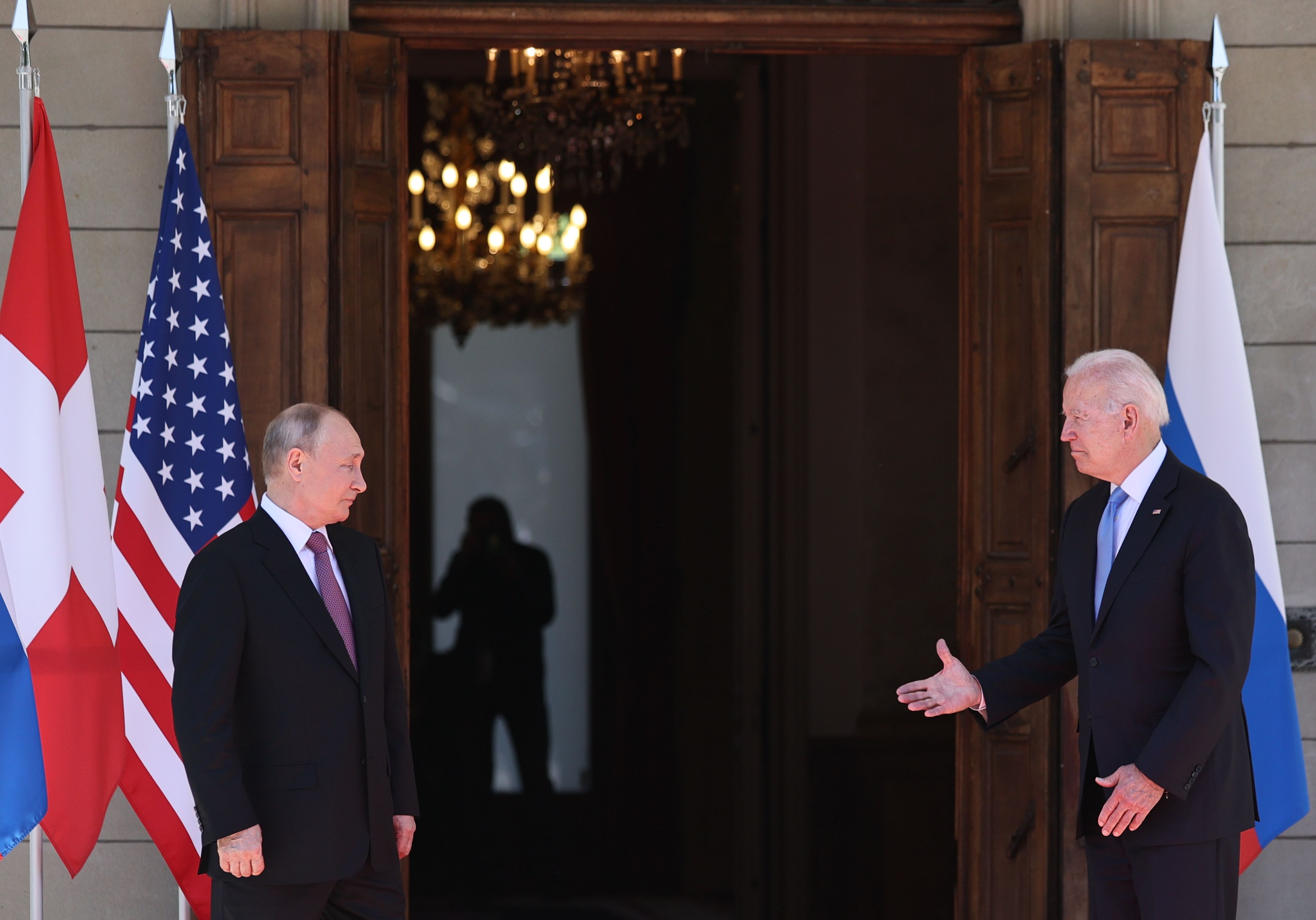No Reset: Biden-Putin Meet in Geneva

What were Biden’s goals for the meeting?
During his first foreign trip, Biden wanted to show U.S. partners in Europe that he would pursue a determined policy towards Russia that would be consulted with them. The meeting’s purpose was also to signal to Russia America’s “red lines”, following recent Russian cyberattacks and violations of human rights in Russia and of international law. Biden made it clear that if Russia continues further aggressive actions against the U.S., it would be met with a decisive response. At the same time, he wanted a resumption of the dialogue on strategic defence systems, both nuclear and conventional, because their uncontrolled development poses a security threat to the U.S. Biden’s practical goal was to unblock the diplomatic clog and resume the dialogue limited by the recall of ambassadors of both countries over the conflicts.
What were Putin’s goals?
From Russia’s perspective, the meeting was supposed to strengthen the country’s international position and consolidate its image as a power equal to the United States. This is important both for domestic politics and for Russia’s international partners in Central Asia, Africa, and South America. Putin managed to persuade the U.S. to organise the summit quickly by demonstrating strength, particularly by concentrating Russian troops on the border with Ukraine. Before the summit, the Russian authorities tried to discredit Biden’s earlier statements about support for democracy in Russia and partnership with Ukraine, among others. At the same time, Russia is counting on the opportunity that once the dialogue on strategic stability is resumed, it will be able to play European allies and the U.S. against each other using sensitive issues such as non-strategic U.S. nuclear weapons.
What came from the meeting?
A very short joint declaration was adopted to resume the bilateral Strategic Stability Dialogue. The 1985 Reagan-Gorbachev Summit conclusion was recalled, which stated that “a nuclear war cannot be won and must never be fought”. Both countries declared that they would lay the groundwork for future arms control measures and risk-reduction measures. Ambassadors are also to be returned to their posts in Moscow and Washington.
During separate press conferences, Biden and Putin emphasised the differences in their respective evaluations of the other country. Putin did not admit to Russia supporting the cyberattacks in the U.S. and rejected accusations that it was persecuting the opposition, while the U.S. emphasised its commitment to the protection of human rights, mentioning Alexei Navalny by name and expressing continued support for him in the face of a lack of cooperation with the Russian authorities. Biden stressed that the consequences if Navalny dies in prison would be “devastating” for Russia.
So, has there been a “reset” in Russian-American relations?
The meeting achieved the maximum possible given the greatest tensions in bilateral relations in 30 years (which was reflected in the meeting statement’s reference to the Cold War summit agreement in 1985). Fundamental differences of interest keep U.S.-Russia relations tense. The decisions of the G7, NATO, and EU-U.S. summits also weaken the possibilities of undertaking deeper cooperation with Russia (NATO considers Russia’s policy a threat). The Strategic Stability talks will quickly determine the parties’ readiness to make concessions necessary for the conclusion of any new agreements on arms control, disarmament, and conflict risk-reduction. The U.S. would have to agree, among others, to include the American missile defence system in the talks, and Russia its latest weapons. This may prove impossible and will quickly lead to a lowering of the bilateral dialogue.
What does the meeting mean for Poland and Eastern Europe?
The Biden-Putin meeting will not weaken Russia’s aggressive policy in Eastern Europe, nor does it end the disinformation campaigns and hacker attacks against the U.S. and its partners, including Poland. Encouraged by the quick turn to dialogue by the U.S., which in the Russian perception was facilitated by the escalation in Ukraine, Putin will likely utilise the threat of using force every time he wants to persuade Western countries to make concessions. The lack of a mention about the negative impacts of the Nord Stream 2 gas pipeline (and easing of some sanctions) and the absence of any mention of the U.S. obligations towards the countries of the Eastern Flank will adversely affect the security of the region. The talks on arms control may be unfavourable for Poland if Russia’s goal is to include the issue of American missile defence in Europe, especially attempts to persuade the U.S. to stop the construction of the Aegis Ashore installation in Redzikowo.



